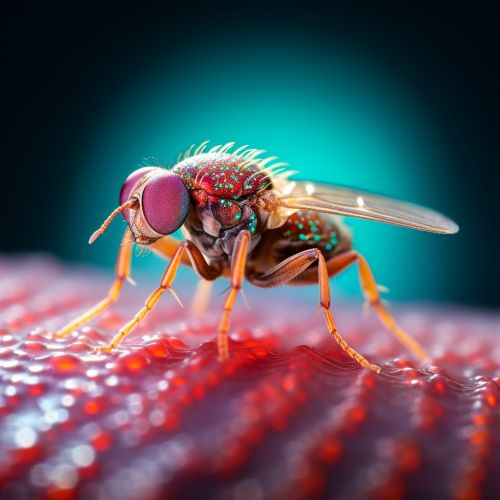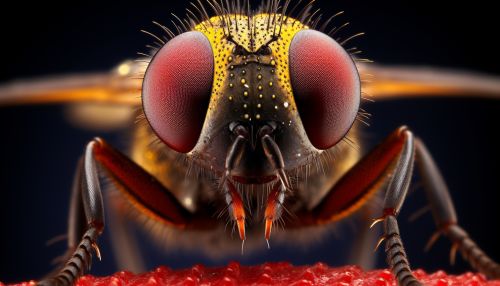Drosophila in Hawaii
Introduction
Drosophila, commonly known as fruit flies, are a genus of flies belonging to the family Drosophilidae. In the context of Hawaii, these flies have a significant role in the ecosystem and have been the subject of numerous scientific studies. This article will delve into the presence, impact, and scientific significance of Drosophila in Hawaii.
Drosophila: An Overview
Drosophila is a genus of small flies, belonging to the family Drosophilidae. The genus contains more than 1,500 species, many of which are found in tropical and subtropical regions around the world. Drosophila are known for their rapid reproduction and short life cycles, traits that have made them a popular model organism in genetic research.


Drosophila in Hawaii
Hawaii is home to over 800 species of Drosophila, making it one of the most diverse regions in the world for this genus. The diversity of Drosophila in Hawaii is attributed to the islands' isolation and varied habitats, which have allowed for extensive adaptive radiation.
Adaptive Radiation
Adaptive radiation is a process in which organisms diversify rapidly from an ancestral species into a multitude of new forms. In the case of Drosophila in Hawaii, the flies have adapted to a wide range of ecological niches, resulting in a high degree of species diversity.
Ecological Impact
Drosophila play a significant role in the Hawaiian ecosystem. As decomposers, they contribute to nutrient cycling by breaking down organic matter. They also serve as a food source for various predators, including birds, spiders, and other insects.
Scientific Significance
The diversity of Drosophila in Hawaii has made them a valuable resource for scientific research. Studies on these flies have contributed to our understanding of evolution, genetics, and ecology.
Evolutionary Studies
The adaptive radiation of Drosophila in Hawaii provides a natural laboratory for studying evolution. Researchers have used these flies to investigate processes such as speciation, adaptation, and genetic drift.
Genetic Research
Drosophila are widely used in genetic research due to their short life cycles and ease of breeding. In Hawaii, the diverse Drosophila species offer a wealth of genetic variation for study.
Ecological Research
Studies on Drosophila in Hawaii have also contributed to our understanding of ecological processes. For example, research on these flies has shed light on food web dynamics, community structure, and the impacts of habitat loss.
